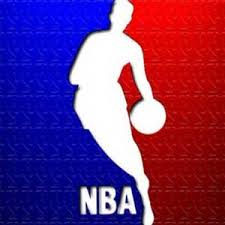Most teams recognized it is impossible to play Iverson straight up and thus threw many men against him.
Watch the first half of Game 1 of the Finals and tell me that Kobe didn't play about as well as any individual could. He blocked his shot, what, 3 times (4 considering one of them was a bail out call)? Forced him to shoot something like 7-19 (I have these numbers at home, so I might be off a little)?
If Iverson is so unstoppable one-on-one, what does that say about Kobe's defense on him?
Nevermind the fact that the Lakers mostly had Fisher on him for the rest of the series and was still inefficient, and that's without much help. Here's some food for thought though... the Sixers had trouble bringing the ball up the floor and many times Iverson would get the ball late in the shot clock and be forced into a difficult long range shot. Can someone tell me why?
Now I will say that perhaps other teams played him differently. I'm not going to sit here and say that I watched a ton of Sixers games. I only watched when we played them, and a few times on national T.V.
Clearly the proper move for Iverson when double teamed would be to find an open 3 point shooter, whereas it's his fault he took too many contested shots, right?
It's hard to pass out of double teams, particularly to the other end of the court where there is likely a wide open man waiting, when you're barely 6'0. That's part of the problem. The other part of the problem is that, as mentioned, was that he wasn't surrounded by great 3-point shooters.
The thing is, how can the 76ers shooters be blamed when they aren't getting touches? Iverson takes (in certain years) almost half of his teams 3PA. He is largely responsible for the team being ranked so low since he's a poor 3-point shooter himself, and if he's not setting up guys with great looks (like other great wing player do), then perhaps some of the blame has to go his way. At the same time, what shooters could have replaced the guys he had and played great defense, which is really the main reason they were competitive in 2001?
There's another trend with Iverson that's really interesting, and that's the progression of his TS% throughout his career. In 97-98 he had a solid .535. His next 6 years after that he posted .508, .496, .518, .489, .500, .478. Then in 2005 (the O'Brien year) he jumped to .532, before 2 more years in Philly at .543 and .540. Iverson is now in very solid efficiency territory. Finally he goes to Denver and puts up a sparkling .567 in perhaps the best year of his career at 32.
.567 is really good, but .543 and .540 are barely above league average. Here's what the average TS% looked like in the league through 2009:
2008-09: 0.544
2007-08: 0.540
2006-07: 0.541
2005-06: 0.535
2004-05: 0.529
2003-04: 0.516
2002-03: 0.519
2001-02: 0.520
2000-01: 0.517
1999-00: 0.522
How can it be a coincidence that Iverson's 5 most efficient years in order were the the 2 beside Melo, with Webber, with Coleman, and Obie's 3 point shooting year?
See above. Part of it is indeed coincidence, with the other part being surrounded by better scorers.









